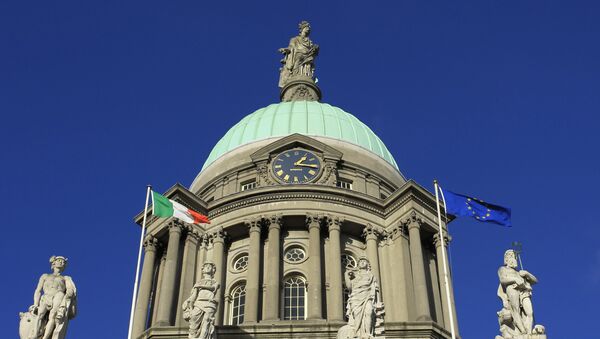"In terms of [Irish Prime Minister Leo] Varadkar, there's a degree of nervousness and I think he is right that this is a potentially dangerous time for Ireland — none of the candidates have any real plan when it comes to the backstop … There's nothing really reasonable, and Boris [Johnson] looks like he is going to win it. So it does look like if it came to the end of October and there was not a deal on the table, he would probably have to go for no deal, given what he has said up till now and the kind of support behind him," Basset stressed.
At the same time, he pointed out that there was still an opportunity for the United Kingdom and the European Union to find a compromise in order to avoid a no-deal Brexit.
"I have no doubt that after the election of the new prime minister there will be an attempt to get something through ... In the end, it will have to be a compromise to get us into the next phase," the former ambassador noted.
Basset opined that possible efforts aimed at keeping the United Kingdom in the European Union could potentially bring even more problems for the bloc than Brexit.
"Even if you manage to reverse it [Brexit], you're going to get a very fractured UK in the EU, so trying to keep the UK in is probably more trouble than its worth. I think more people are starting to see that, and there's an element of exhaustion and tiredness and boredom involved here also … So even if we cannot get a total deal, the possibility of an interim deal is there, but I think the UK will still have to leave," he added.
The United Kingdom was unable to leave the European Union on March 29, as originally intended, because the withdrawal deal had been voted down by the UK lawmakers. The European Council gave the United Kingdom an extension until October 31, with an option to leave earlier if the UK parliament passes the deal.
At the same time, the European Union, including the European Commission, has repeatedly stated that the draft agreement on the conditions for the United Kingdom's withdrawal from the bloc reached last year was not subject to revision.
The Irish border issue has been a stumbling block in the EU-UK Brexit talks. In November, Brussels and London agreed on the Brexit deal, including the so-called backstop that would be put into practice if the sides failed to agree on all the terms of their relationship by the end of the Brexit transition period. The backstop would keep Northern Ireland in the EU Customs Union if London and Brussels failed to reach the deal.


